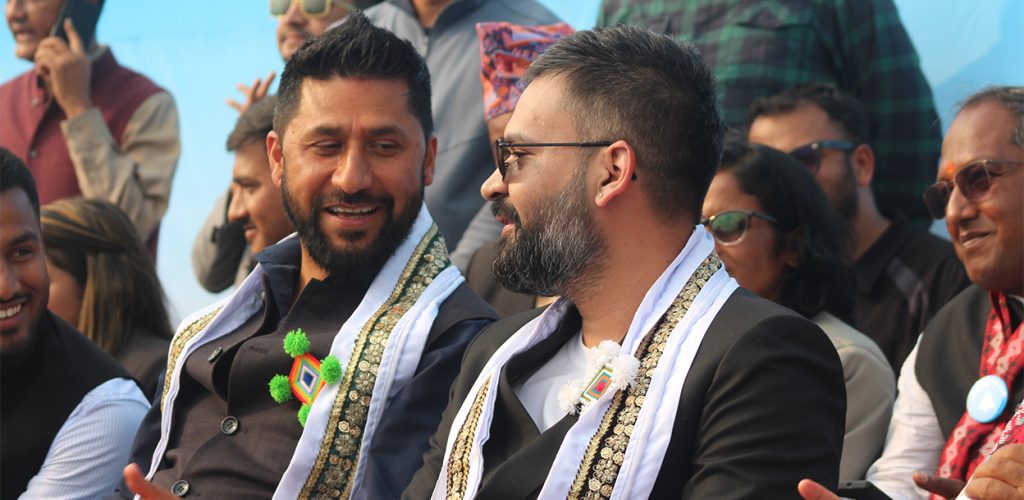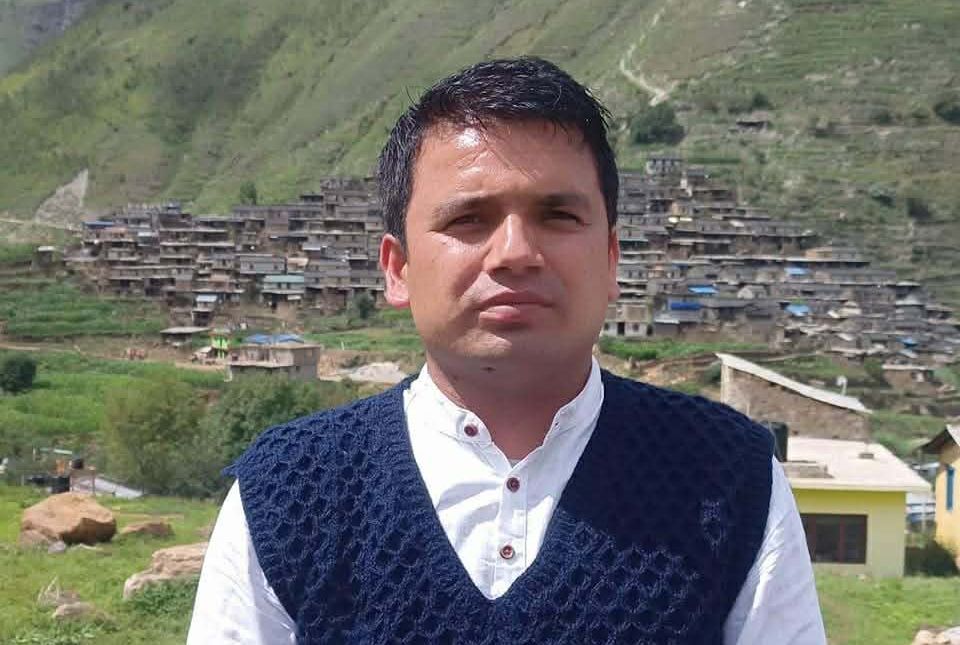
July 3, Kathmandu.
CPN-UML General Secretary Shankar Pokharel has stated that the government under KP Sharma Oli’s leadership will have two main objectives: political stability and constitutional amendment. Pokharel posted on social media Facebook on Tuesday afternoon, announcing that a national government under Oli’s leadership has been agreed upon for these purposes.
Before General Secretary Pokharel’s social media post, these two topics had already been made public. On Monday midnight, Nepali Congress President Sher Bahadur Deuba and UML Chairman Oli decided to change the current government. The justification for this government change was to amend the constitution and ensure political stability.
In essence, General Secretary Pokharel released this information quite late. However, his status has drawn significant attention in political circles.
UML Central Member Kishore Bikram Malla states that to understand the interest in General Secretary Pokharel’s status, one must look at past events. “The General Secretary has been advocating for a strong political power for political stability,” he says. “Given the current political situation moving in that direction, it is natural that his status is being watched with interest.”
The institutional goal of UML is to become a strong political force. Hence, various activities are being conducted under the Mission-84 campaign. The objective is to make UML stronger in the upcoming elections by increasing youth participation in the party structure, selecting leadership according to the wishes of the activists, deploying leaders to different regions, and focusing on activities like the Mid-Hill Highway Resolution Journey.
This strong power refers to forming a single majority government led by UML. However, leaders almost unanimously agree that under the current constitutional arrangement, no party can secure a single majority. Especially UML and Congress leaders have stated that a single majority cannot be achieved with the current electoral system.
Despite this, UML General Secretary Pokharel was advocating for it. His advocacy is noteworthy because he mentions a two-party system.
General Secretary Pokharel has been saying that the presence and manoeuvring of small parties in parliament prevent the country from ever achieving political stability. On June 22, he also spoke in favour of two large parties during his visit to his home district of Dang.
Pokharel’s public speech marginalises current parties like the CPN (Maoist Center), CPN (Unified Socialist), and Rastriya Prajatantra Party (RPP). Thus, his public remarks in Dang also became a news topic.
“The ten-year experience of the current constitution concludes with the need for electoral system reform. For that, the constitutional amendment is necessary, which cannot be done without the cooperation of Congress and UML,” says Central Member Malla. “Therefore, it can be said that the country’s politics is also moving in the direction indicated by UML and General Secretary Pokharel.”
Indeed, the agreement between Congress and UML to form a government and amend the constitution clearly seeks to exclude smaller political forces.
If the government is formed and functions according to the Congress-UML agreement, small parties may be pushed towards rebellion. First, when these two parties come together, small powers will not be decisive for power.
In the 2022 implementation Hung Parliament, the 32-seat Maoist Center used its advantage to alternately support larger parties like Congress and UML. Maoist Center Chairman Pushpa Kamal Dahal had to navigate a situation where Congress and UML leaders were practically at war to make him the prime minister. Dahal continued to change the power equation by using Congress and UML alternately. The fact that he restructured the cabinet 18 times within one and a half years as Prime Minister shows his manoeuvring.
When the coalition of Congress, Maoists, and Unified Socialists was in power, even Madhav Nepal was waiting his turn to become Prime Minister. At that time, there was an agreement between Deuba, Dahal, and Madhav for a rotational prime ministership.
In the 2022 elections, the Unified Socialists, led by Madhav Nepal, could not even cross the three per cent threshold. Despite not becoming a national party, Unified Socialists were in the race to lead the government.
After Madhav Nepal, Upendra Yadav also claimed the Prime Minister’s post. At that time, Upendra’s party had 12 seats, later reduced to 5 MPs after a split.
Madhav and Upendra’s claims to the prime ministership were significant because of their party’s role in forming the government. If Congress and UML run the government for the rest of the parliamentary term, the role of these small parties will weaken.
On the other hand, if the constitution is amended as per the Congress-UML agreement, small parties will find it difficult in the upcoming 2028 elections. Initial discussions on constitutional amendment include raising the threshold limit, reducing the size of the parliament, and further organising the mixed electoral system. If the constitution is amended with these provisions, small powers will face even more challenges.
Understanding this potential political scenario and possibilities explains the interest in UML General Secretary Shankar Pokharel’s advocacy.


























